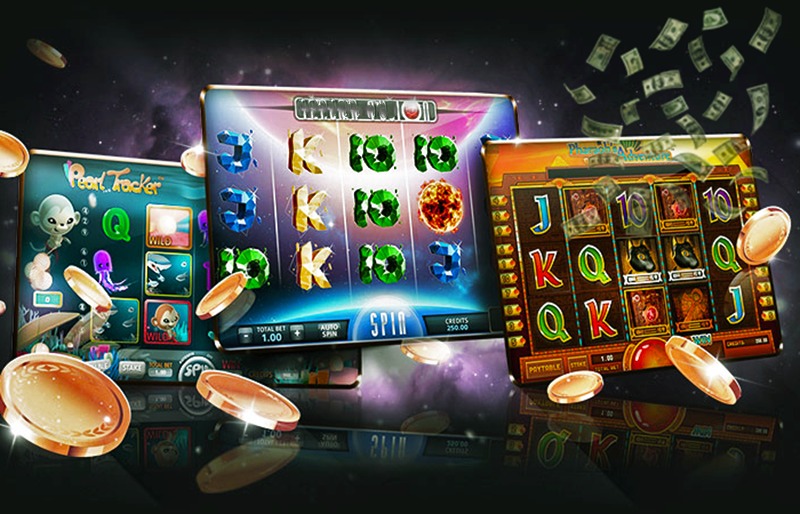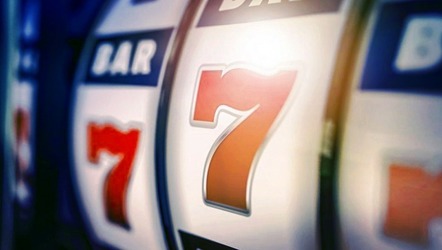New York, NY (Top40 Charts) The days when the slot machines were able to work by themselves like wind-up watches without using electricity are far behind. However, until the early 1960s, mechanical slot cabinets were extremely common: casino staff used to clean these machines and wind-up their cogs at regular intervals.
Much of the slot legends come from this period, because if you listened carefully, you could predict the position of the reels/cogs of these machines and understand when the payout was going to happen. Electromechanical slot games were introduced in the 60s, and although their basic infrastructure did not change, at least these machines were able to automatically wind-up themselves using electricity. This was seen as an "incredible revolution" at the time.
In the early 1990s, IGT released the world's first video slot game. The reason why it was called a "video slot" was that these cabinets had a TV unit just like the arcade games. These Sony-produced TVs were connected to a simple computer chip and only used as a monitor. The entire setup was very similar to the Commodore 64 consoles, which were very popular at the time. Although this sounds like a quite simple setup today, video slot machines have changed the iGaming industry forever and put an end to the use of physical reels/cogs. Now, everything was running through computer software.
Nowadays, it is possible to say that the slot machines are still one of the most widely played free casino games and attract the attention of every type of player. They are known as "free slots games no download", because they can run on any platform and device easily, without downloading additional software. So, what makes this possible? What technologies are used in modern slot games? Below, you will find answers to all these questions and more.
The RNG (Random Number Generator) Software

Modern slot games consist of thousands of lines of computer codes. And the RNG software is the most important part of these codes. This software has a very simple purpose - to generate random numbers within a certain range.
An RNG software, for example, generates random numbers in the range of 1 to 10,000 and transmits them to other modules of the slot game. These numbers are more important than you think because they are what determines if you can win or not. Simply put, each symbol in slot games has a numerical counterpart. If the number generated by the RNG matches these equivalents, that symbol will appear on the screen and you will score a winning.
Sounds complicated? Here's a simple example.
-
Imagine that there is a wild symbol in the slot game you play. In the computer language, the numerical equivalent of this symbol should include all digits between 380 and 390.
-
As soon as you press the "spin" button, the RNG software creates a number. Suppose this number is 384.
-
Since it is in the corresponding range, the wild symbol will appear on the screen. If the number was 212 or 364, the wild symbol would not appear on the screen because the RNG result did not match the numerical counterpart.
Of course, this happens very quickly and even completes the moment you press the spin button. This is a very simple example, but it is enough to explain the logic of the slot machines: a program determines which symbols will appear on the screen, and this program produces completely random results.
So, what does that mean? Simply put, this logic of work illustrates why it is impossible to develop a "strategy" for modern slot games. There's no way to predict when a slot machine will pay. During the period when physical reels/cogs were used, it was possible to predict and even change the result by physically interfering with these reels and cogs.
The first examples of video slot games were quite suitable for hacking, and there are even players who did this. Some players even managed to change the onboard chips to guarantee winning at every spin.
However, modern slot games work very differently. Today, if you open the slot cabinet in a land-based casino, you'll find it completely empty. Each game connects to a central server over a complex network, and the cabinet displays serve as a monitor only. So unless you're in the server room, there's nothing to hack. Even the programmer himself cannot predict what results the RNG software will produce, as it generates completely random numbers. In short, it is not possible to develop a legal or illegal strategy for modern slot machines. These are games based entirely on chance, and it is impossible to develop a "system", like blackjack or poker.
HTML 5 Technology: The Programming

Until the early 2000s, the platform used to develop slot games was "Adobe Flash". It was logical to use Flash at that time, as online casino games were being developed to run on PCs, not on mobile devices. Mobile gambling was not yet known and limited to a few Java applications developed exclusively for Nokia phones. There seemed to be no problem, as PCs were able to run the Flash platform smoothly and the development costs were low: Adobe Flash was the perfect technology at the time.
But it also had many problems. Security issues were at the forefront: Flash was a technology with many security risks and needed to be updated almost every week (this is still the case today). In addition, it had limited graphical capabilities, and the hardware power of the computers had a direct impact on the performance of the games.
However, the biggest problem was the platform support: Apple had made it clear that it would not support Flash, and mobile gambling was evolving. Adobe Flash, which can only support the Microsoft Windows platform, was not an appropriate choice for online gambling.
HTML 5 solved all these problems. As the name suggests, it is the fifth version of the HTML coding language and its most important feature is the ability to run external applications through browsers. Simply put, your browser establishes a connection to the remote server that hosts the code of the game and runs it on the browser, without the need for a separate download/installation.
So it doesn't matter which operating system you use: iOS, Android, Windows, Linux or Mac. As long as your device has an internet connection and a browser, you can run HTML 5 applications. And because servers do the most part, the power of hardware doesn't matter. Even the cheapest netbook PCs can run HTML 5 applications easily and without loss of performance.
Modern slot games are now being developed using this technology. Flash days are over, and it is not favoured by any provider. HTML 5 slot games have advanced graphics and multi-platform support, so there is no need to develop a different version for each platform, which reduces overall costs. This advanced programming language represents the future of the iGaming industry as live casino games use the same infrastructure too. In short, there are two basic technologies used by modern slot games: RNG and HTML 5. These technologies are an integral part of all of today's slot games, and this situation won't change for the foreseeable future.


























